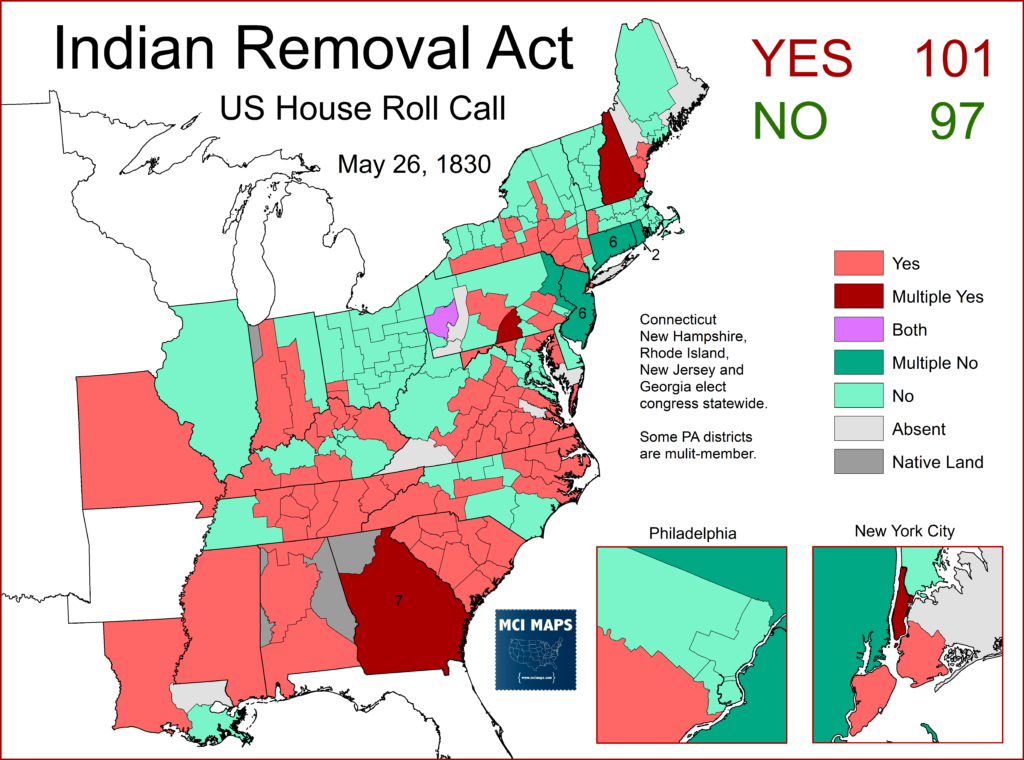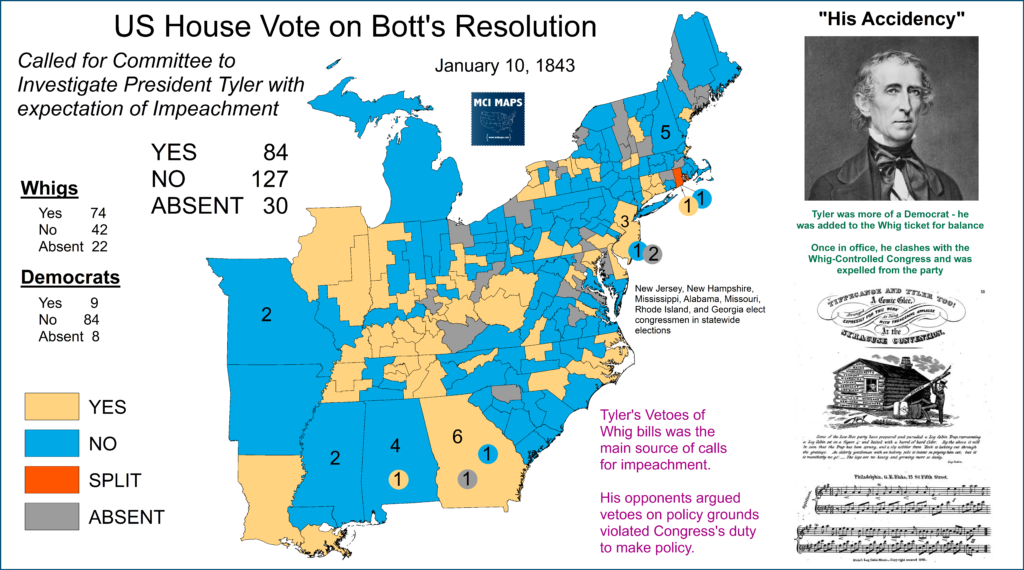Indian Removal Act
The story of Andrew Jackson and the expulsion of Native Americans from the eastern states is well documented. What often gets overlooked is the Congressional votes on the the removal. The US House vote passed with just 4 votes. The most notable NO vote was Tennessee Congressman Davy Crockett; who said “I believed it was a wicked, unjust measure…. I voted against this Indian bill, and my conscience yet tells me that I gave a good honest vote, and one that I believe will not make me ashamed in the day of judgement.” Crockett’s opposition cost him re-election, but he never regretted his vote.

This vote continued a long history of crimes against the Native American people.
The First Effort to Impeach
We often think of Andrew Johnson as the first President to face impeachment. While he did suffer the first vote, it was not the first time Congress made such a threat. In 1843, Congress held a vote that could have led to impeachment against John Tyler. The move was entirely political, as the Whig-Controlled Congress was angry that Tyler, who’d been elected Whig VP and became President when President Harrison died, did not support Whig priorities. The truth was Tyler was more of a Democrat; only on the ticket for balance. The Whigs never expected Tyler to ascend to the Presidency. A vote was held to investigate Tyler for vetoing bills.

Tyler would be expelled from the Whig party and considered a 3rd party run in 1844. However, he eventually threw his support behind eventual winner, Democrat James K Polk.
